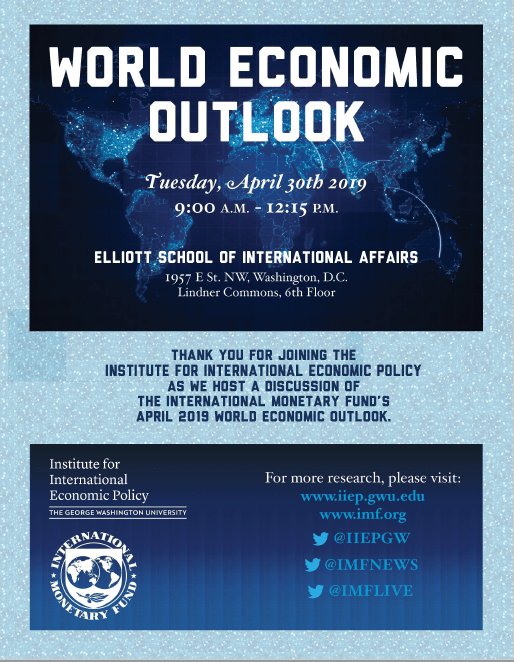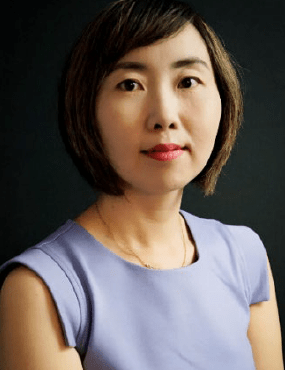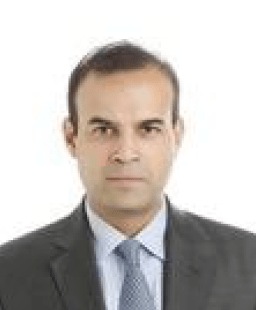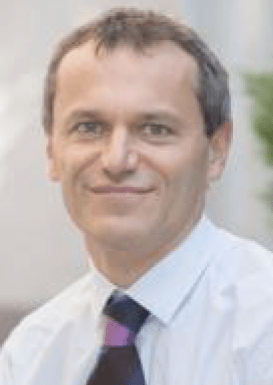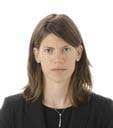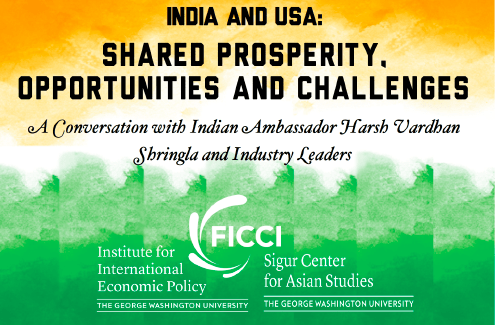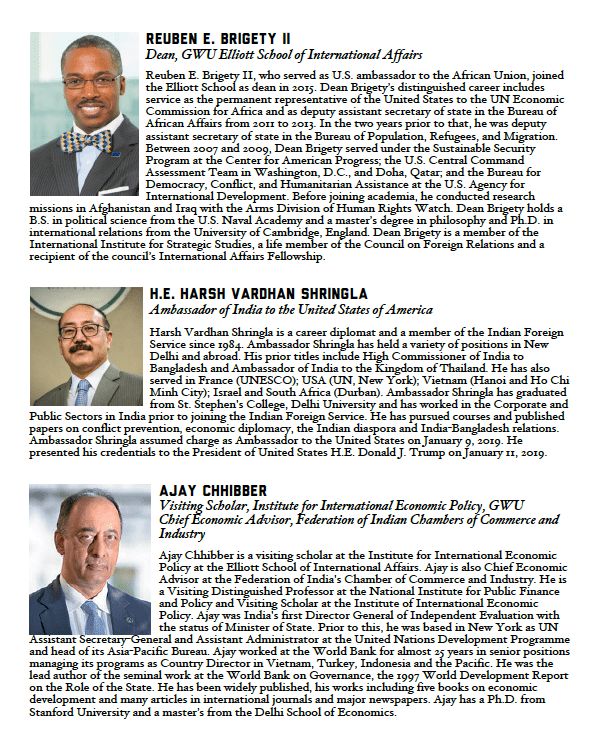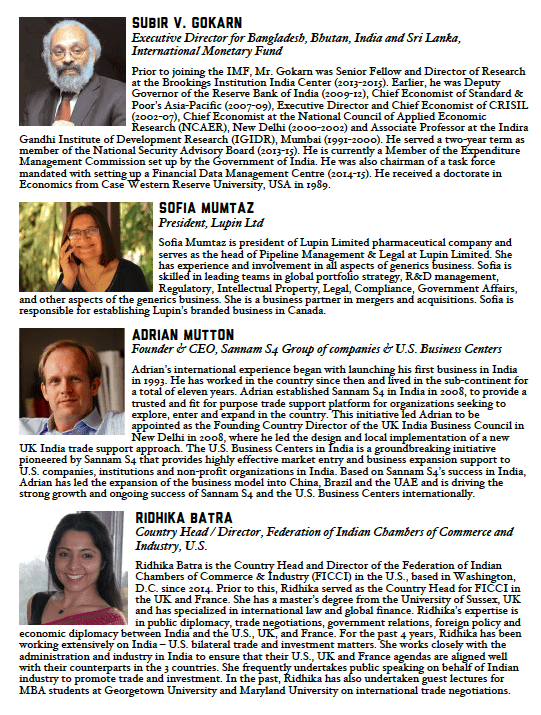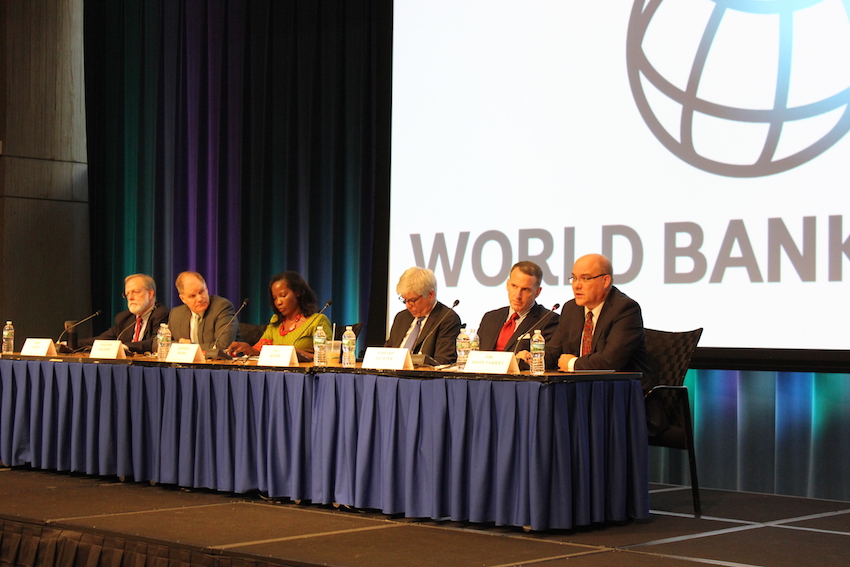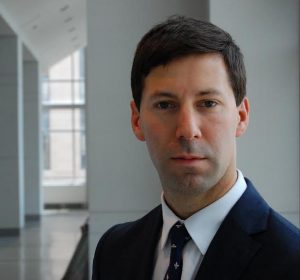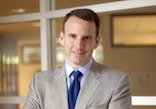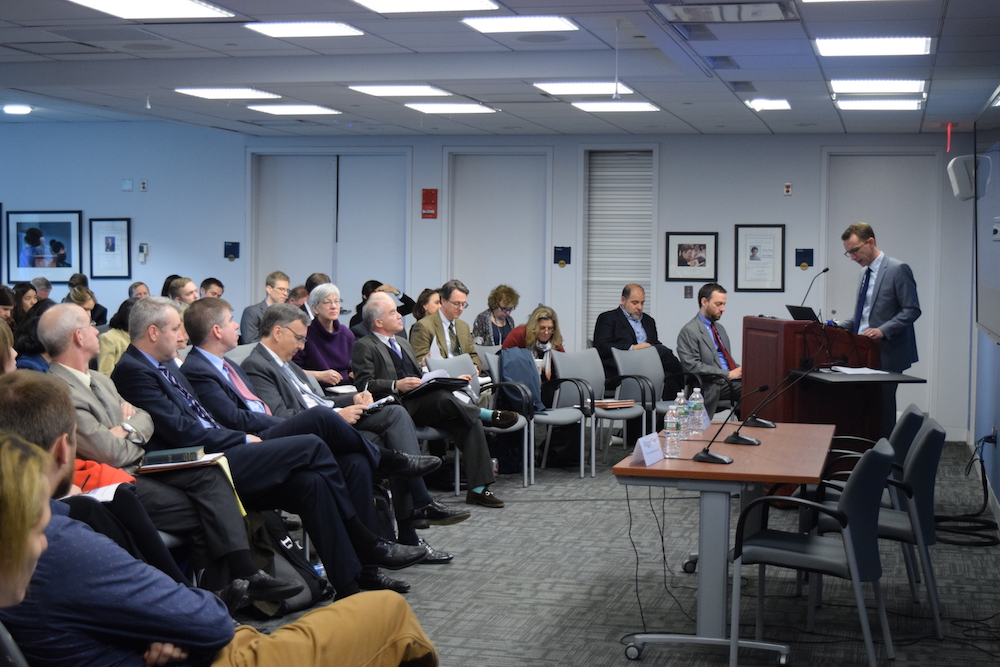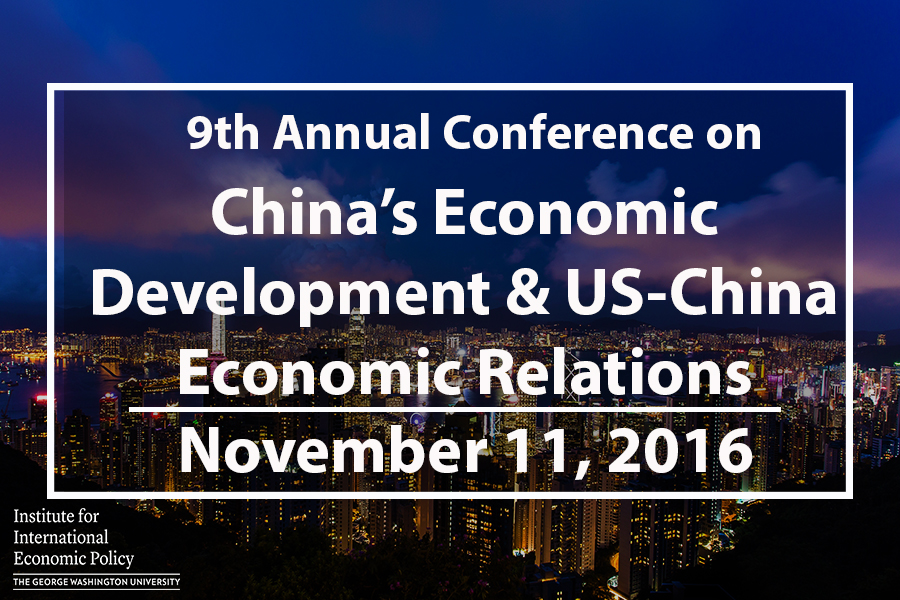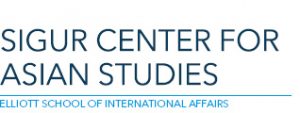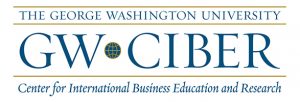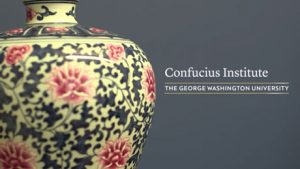Keynote Speaker
Chief Economist and Senior Vice President, World Bank
Dr. Paul Romer took office as the World Bank’s Chief Economist and Senior Vice President in October, 2016. Romer is on leave from his position as University Professor at New York University. His initial interest in technological progress led to research on topics ranging from an abstract analysis of how the economics of ideas differs from the economics of objects to practical suggestions about how to improve science and technology policy. More recently, his research on catch-up growth in low- and middle-income countries has emphasized the importance of government policies that encourage orderly urban expansion. Before NYU, Romer taught at Stanford University’s Graduate School of Business, and while there, also started Aplia, an education technology company dedicated to increasing student effort. Romer has also variously taught economics at the University of California, Berkeley, the University of Chicago, and the University of Rochester.
Chairs and Panelists
Maggie Chen
Professor of Economics, GW and IIEP
Maggie Xiaoyang Chen is the Director of the Institute for International Economic Policy and Professor of Economics and International Affairs at George Washington University. Professor Chen’s areas of research expertise include foreign direct investment, international trade, and regional trade agreements and her work has been published extensively in academic journals. She has worked as an economist in the research department of the World Bank, a consultant for various divisions of the World Bank and the International Finance Cooperation, and a trade policy advisor at the U.S. congressional Budget Office leading policy analyses on the Trans-Pacific Partnership Agreement. She has also held visiting professor positions in various universities including Boston College and University of International Business and Economics in Beijing, China and is a co-editor of the Economic Inquiry. Professor Chen received her Ph.D. and M.A. in Economics from the University of Colorado at Boulder and her B.A. in Economics from Beijing Normal University.
Craig Kesson
Executive Director for the Directorate of the Mayor, City of Cape Town, South Africa
Craig Kesson is the City of Cape Town Executive Director for the Directorate of the Mayor as well as the Chief Resilience Officer, in partnership with the 100 Resilient Cities Programme. He has worked in several senior roles in city management and has advised a number of metro governments. He previously served as the National Director of Research for South Africa’s Official Opposition. He is a graduate of the University of KwaZulu Natal, the University of Stellenbosch Business School, the University of Liverpool, and the University of Oxford where he was a Rhodes Scholar. His specialisations are in public policy and strategy; project portfolios, and operations modelling. He is the co-author with Mayor Patricia De Lille of an upcoming book on the nature of city leadership and management planned for publication in August 2017.
Marianne Fay
Chief Economist, Climate Change Group, World Bank Group
Marianne Fay is the chief economist for climate change at the World Bank. She co-directed the World Development Report 2010 on Climate Change. Ms. Fay has served in multiple regions in the World Bank, including Eastern Europe and Central Asia, Latin America and the Caribbean, and Africa, working on infrastructure, urbanization, and more recently on climate change and green growth. Her research has explored the role of infrastructure and urbanization in development, with a particular focus on urban poverty, climate change, and green growth, on which she has authored numerous articles and books. As chief economist for sustainable development, she led the World Bank’s flagship report for the Rio+20 UN Conference on Sustainable Development, Inclusive Green Growth: The Pathway to Sustainable Development.
Ede Ijjasz-Vasquez
Senior Director, Social, Urban, Rural and Resilience Global Practice, The World Bank
Ede Ijjasz-Vasquez is the Senior Director for the World Bank Group’s Social, Urban, Rural and Resilience Global Practice. In this position, Mr. Ijjasz-Vasquez leads a team of over 600 technical experts deployed across the world, leveraging global knowledge and collaborating with partners to help tackle the world’s most complex development challenges in: social inclusion and sustainability; mainstreaming resilience in all dimensions development; territorial and rural development; and urban planning, services and institutions. Before this, he was Director for Sustainable Development of the Latin America and Caribbean Region since November 2011, covering infrastructure, environment and climate change, social development, agriculture and rural development, disaster risk management, and urban development with an active portfolio of about $17 billion. From 2007 to 2011, he was based in Beijing, where he managed the Sustainable Development Unit for China and Mongolia. Earlier in his career, he managed the global trust-funded programs ESMAP and WSP in energy and water and sanitation, respectively. Mr. Ijjasz has a Ph.D. and a M.Sc. from the Massachusetts Institute of Technology (MIT) in civil and environmental engineering, with specialization in hydrology and water resources. He has been a lecturer at the Environmental Science and Policy Program at Johns Hopkins University, and at Tsinghua University. He is a Colombian and Hungarian national.
William Maloney
Chief Economist, Equitable Growth, Finance and Institutions, World Bank
William F. Maloney is Chief Economist for Equitable Growth, Finance and Institutions in the World Bank Group. Previously he was Chief Economist for Trade and Competitiveness and Global Lead on Innovation and Productivity. Prior to the Bank, he was a Professor of Economics at the University of Illinois, Urbana-Champaign (1990-1997) and then joined, working as Lead Economist in the Office of the Chief Economist for Latin America until 2009. From 2009 to 2014, he was Lead Economist in the Development Economics Research Group. From 2011 to 2014 he was Visiting Professor at the University of the Andes and worked closely with the Colombian government on innovation and firm upgrading issues.
Jennifer Semakula Musisi
Executive Director, Kampala Capital City Authority
Jennifer Semakula-Musisi is the first Executive Director of the Kampala Capital City Authority that was established to administer Uganda’s Capital City-Kampala on behalf of the Central Government. Over the past six Years, Jennifer has headed the transformation of the City and initiated a number of activities that have enhanced efficiency in services delivery and paved way for the current steady Transformation of Kampala. The achievements over the period have become an admiration and a benchmark for many upcoming municipalities and Cities in East Africa and beyond. Jennifer is a lawyer by profession. She served as the Commissioner Legal Services and Board Affairs in Uganda Revenue Authority; and; she is an entrepreneur with several successful private businesses in Uganda.
Michael Toman
Research Manager, Environment and Energy Research Program, Development Research Group, The World Bank
Michael Toman (Mike) is Lead Economist on Climate Change in the Development Research Group and Manager of the Energy and Environment Team. His current research interests include alternative energy resources, policies for responding to risks of climate change catastrophes, timing of investments for greenhouse gas reduction, and mechanisms for mitigating greenhouse gas emissions through reduced deforestation. During his career Mike has done extensive research on climate change economics and policy, energy markets and policy, environmental policy instruments, and approaches to achieving sustainable development. Prior to joining the World Bank in fall 2008, he held senior analytical and management positions at RAND Corporation, Inter-American Development Bank, and Resources for the Future. His teaching experience includes adjunct positions at the Johns Hopkins School of Advanced International Studies and the School of the Environment, University of California at Santa Barbara. Mike has a B.A. from Indiana University, a M.Sc. in applied mathematics from Brown University, and M.A. and Ph.D. degrees in economics from the University of Rochester.
Anna Wellenstein
Director of Strategy and Operations, Social, Urban, Rural, and Resilience (SURR) Global Practice, World Bank
Anna is a key member of the World Bank’s SURR GP senior management team that sets strategy for analytics and financing in areas such as disaster risk reduction, urban renovation, and geospatial technology. She also oversees partnerships with bilateral, UN, and regional organizations. Anna has over 20 years of experience in urban development. She’s led efforts to design and finance investments, facilitate policy reforms and build capacity to help developing countries reduce poverty and boost equity. Anna has been responsible for technical oversight of new projects financed by the Bank, the portfolio quality of ongoing projects, and setting sector and country strategies. Anna oversees $25 billion in lending to developing countries in over 200 projects, 325 studies and technical assistance projects. She’s developed strong partnerships with governments in countries ranging from large middle income to small island states as well as development agencies and academia.
Horacio Terraza
Lead Urban Specialist for the Latin American Region, The World Bank
Horacio has more than 20 years of professional experience in the urban-environmental field, having worked both in the private sector and multilateral development organizations. He has just rejoined the World Bank as Lead Urban Specialist for the Latin American Region focusing on cities and Resilience. During the previous 6 years he worked at the Inter-American Development Bank (IDB) as the Coordinator of the Emerging and Sustainable Cities Initiative (ESCI) and also as Principal Water Specialist. Before the IDB Horacio worked for 11 years as a Senior Environmental Specialist at the World Bank, leading the urban environmental agenda in the Latin American Department. Prior to that, he worked in the private sector as a Project Manager for environmental engineering companies providing treatment and final disposal of hazardous substances. Horacio was trained as a mechanical engineer at the National University of La Plata in Argentina and holds a Master’s in International Economics and International Relations from the Johns Hopkins University School of Advanced International Studies (SAIS).
Presenters
Robert Buckley
Affiliated Scholar, Urban Institute
Bob Buckley is an Affiliated Scholar at the Urban Institute. He was Managing Director at the Rockefeller Foundation, Advisor at the World Bank, and Senior Fellow at the New School. He has written widely on urbanization and development in both the popular press and academic journals, and has helped prepare projects in a variety of places.
Gilles Duranton
Accessibility and Mobility in Urban India, Wharton School
Gilles Duranton is Professor of Accessibility and Mobility in Urban India and holds the Dean’s Chair in Real Estate. He joined the Wharton School in 2012 after holding academic positions at the University of Toronto and the London School of Economics. A graduate from HEC Paris and Sorbonne University, he obtained his PhD in economics jointly from the London School of Economics and the Ecole des Hautes Etudes en Science Sociales in Paris. His research focuses on urban and transportation issues. His empirical work is concerned with urban growth and the estimation of the costs and benefits of cities and clusters. He is also interested in the effects of transportation infrastructure on urban development and the evaluation of local policies. He also conducts theoretical research to gain insight about the distribution of city sizes, the skill composition, and sectoral patterns of activities in cities.
Somik Lall
Lead Economist, The World Bank
Somik V. Lall is a Lead Economist for Urban Development at the World Bank’s Urban Development and Resilience Unit in the Sustainable Development Network. He is the lead author of a World Bank report on urbanization “Planning, Connecting, and Financing Cities Now: Priorities for City Leaders.” He was a core team member of the 2009 World Development Report “Reshaping Economic Geography”, and recently Senior Economic Counsellor to the Indian Prime Minister’s National Transport Development Policy Committee. Somik currently leads a World Bank program on the Urbanization Reviews, which provides diagnostic tools and a policy framework for policymakers to manage rapid urbanization and city development. His research interests span urban and spatial economics, infrastructure development, and public finance. He has over 40 publications featuring in peer reviewed journals, edited volumes, and working papers. Somik holds a bachelors degree in engineering, masters in city planning, and doctorate in economics and public policy.
Daniel da Mata
Researcher, Institute for Applied Economic Research
Daniel Da Mata is a Tenured Researcher at the Institute for Applied Economic Research (Ipea). He holds a Ph.D. in Economics from the University of Cambridge. Since joining Ipea in 2004, he has held several positions at the institute, including Head of Urban Studies and Head of Quantitative Research Division. His research on Urban, Public and Development Economics has been published in peer reviewed journals and book chapters. He has recently won the BMZ/GIZ Public Policy Award and the European Regional Science Association EPAINOS Award.
Matthew Turner
Professor of Economics, Brown University
Matthew Turner is a Professor of Economics at Brown University. He regularly teaches courses in urban and environmental economics, and occasionally, microeconomic theory. He is broadly interested in environmental and urban policy and his recent research focuses on the economics of land use and transportation. Professor Turner holds a Ph. D. in economics from Brown University and is a Co-Editor of the Journal of Urban Economics. His research appears in the American Economic Review, the Journal of Political Economy, the Quarterly Journal of Economics, the Review of Economic Studies and Econometrica, and is regularly featured in the popular press.
Anthony Venables
Professor of Economics at the University of Oxford and Director of the Centre for the Analysis of Resource Rich Economies
Tony Venables CBE is Professor of Economics at the University of Oxford where he also directs the Centre for the Analysis of Resource Rich Economies and a programme of research on urbanisation in developing economies. He is a Fellow of the British Academy and of the Econometric Society. Former positions include Chief Economist at the UK Department for International Development, professor at the London School of Economics, research manager of the trade research group in the World Bank, and advisor to the UK Treasury. He has published extensively in the areas of international trade, spatial economics, and natural resources, including work on trade and imperfect competition, economic integration, multinational firms, and economic geography.
Discussants
Alain Bertaud
Adjunct Professor, Marron Institute
Alain Bertaud is an Adjunct Professor at the Marron Institute and a senior research scholar at the NYU Stern Urbanization Project. At the moment, he is writing a book about urban planning that is tentatively titled Order Without Design. Bertaud previously held the position of principal urban planner at the World Bank. After retiring from the Bank in 1999, he worked as an independent consultant. Prior to joining the World Bank he worked as a resident urban planner in a number of cities around the world: Bangkok, San Salvador (El Salvador), Port au Prince (Haiti), Sana’a (Yemen), New York, Paris, Tlemcen (Algeria), and Chandigarh (India).
Leah Brooks
Assistant Professor, Trachtenberg School of Public Policy and Public Administration, George Washington University
Leah Brooks is Assistant Professor in the Trachtenberg School of Public Policy and Public Administration at the George Washington University. After receiving her PhD from UCLA in 2005, she taught at the University of Toronto and McGill University, and worked at the Federal Reserve Board of Governors. Her research interest is urban political economy. Her work to date has examined Business Improvement Districts to understand the resolution of collective action problems, and the Community Development Block Grant program to analyze the political economy of grant giving at the municipal and sub-municipal levels. She has documented the existence and analyzed the impacts of municipally-imposed tax and expenditure limits, studied the premium required to assemble land, analyzed the long-term effects of streetcars on urban form, and is hard at work examining the impact of containerization on cities.
Maisy Wong
Associate Professor, Real Estate at the Wharton School, University of Pennsylvania
Maisy Wong is an Associate Professor of Real Estate at the Wharton School at University of Pennsylvania. Her current research interests include household mobility and sorting behavior, urbanization in developing countries, and real estate finance. Her research has been published in journals such as the American Economic Review, Review of Economic Studies, AEJ: Applied Economics, and Journal of Finance. She holds a Ph.D. in Economics from Massachusetts Institute of Technology and a B.A. in Economics from the University of California, at Berkeley.
 Dr. Bingjing Li is an Associate Professor of Economics at the University of Hong Kong. Her main research fields are international trade and applied microeconomics. Using both micro data and quantitative models, her works focus on understanding the interactions of international trade with development and political economy factors, and their consequences.
Dr. Bingjing Li is an Associate Professor of Economics at the University of Hong Kong. Her main research fields are international trade and applied microeconomics. Using both micro data and quantitative models, her works focus on understanding the interactions of international trade with development and political economy factors, and their consequences. James Feigenbaum is an Assistant Professor in the Boston University Department of Economics. He is also a Faculty Research Fellow at the NBER in the Development of the American Economy program and a Junior Faculty Fellow at BU’s Hariri Institute for Computing. James studies economic history, labor economics, and political economy. His research interests include understanding the effects of economic shocks on politics and politicians. Prof. Feigenbaum received his PhD in Economics from Harvard University and his B.A. with High Honors in Economics and Mathematics from Wesleyan University.
James Feigenbaum is an Assistant Professor in the Boston University Department of Economics. He is also a Faculty Research Fellow at the NBER in the Development of the American Economy program and a Junior Faculty Fellow at BU’s Hariri Institute for Computing. James studies economic history, labor economics, and political economy. His research interests include understanding the effects of economic shocks on politics and politicians. Prof. Feigenbaum received his PhD in Economics from Harvard University and his B.A. with High Honors in Economics and Mathematics from Wesleyan University. Maggie Chen is Professor of Economics and International Affairs at George Washington University. She has served as Director of GW’s Institute for International Economic Policy and worked as an economist in the research department of the World Bank and a consultant for the World Bank, the International Finance Corporation, the Inter-American Development Bank, and the U.S. Congressional Budget Office. Professor Chen’s research areas include multinational firms, international trade, and regional trade agreements. Her work has been published in academic journals such as the Review of Economics and Statistics, American Economic Journal: Applied Economics, American Economic Journal: Economic Policy, Journal of International Economics, and Journal of Development Economics. She is a co-editor of Economic Inquiry and an associate editor of Economic Modeling.
Maggie Chen is Professor of Economics and International Affairs at George Washington University. She has served as Director of GW’s Institute for International Economic Policy and worked as an economist in the research department of the World Bank and a consultant for the World Bank, the International Finance Corporation, the Inter-American Development Bank, and the U.S. Congressional Budget Office. Professor Chen’s research areas include multinational firms, international trade, and regional trade agreements. Her work has been published in academic journals such as the Review of Economics and Statistics, American Economic Journal: Applied Economics, American Economic Journal: Economic Policy, Journal of International Economics, and Journal of Development Economics. She is a co-editor of Economic Inquiry and an associate editor of Economic Modeling. Jay Shambaugh is Professor of Economics and International Affairs, and Director of the Institute for International Economic Policy at the Elliott School of International Affairs, George Washington University. His area of research is macroeconomics and international economics. He has had two stints in public service. He served as a Member of the White House Council of Economic Advisors from 2015-2017. Earlier, he served on the staff of the CEA as a Senior Economist for International Economics and then as the Chief Economist. He also spent 3 years as the Director of the Hamilton Project at the Brookings Institution. Jay is also a Faculty Research Fellow at the NBER and Non-Resident Senior Fellow in Economic Studies at Brookings. Prior to joining the faculty at George Washington, Jay taught at Georgetown and Dartmouth and was a visiting scholar at the IMF. He received his Ph.D. in economics from the University of California at Berkeley, an M.A. from the Fletcher School at Tufts, and a B.A. from Yale University.
Jay Shambaugh is Professor of Economics and International Affairs, and Director of the Institute for International Economic Policy at the Elliott School of International Affairs, George Washington University. His area of research is macroeconomics and international economics. He has had two stints in public service. He served as a Member of the White House Council of Economic Advisors from 2015-2017. Earlier, he served on the staff of the CEA as a Senior Economist for International Economics and then as the Chief Economist. He also spent 3 years as the Director of the Hamilton Project at the Brookings Institution. Jay is also a Faculty Research Fellow at the NBER and Non-Resident Senior Fellow in Economic Studies at Brookings. Prior to joining the faculty at George Washington, Jay taught at Georgetown and Dartmouth and was a visiting scholar at the IMF. He received his Ph.D. in economics from the University of California at Berkeley, an M.A. from the Fletcher School at Tufts, and a B.A. from Yale University.


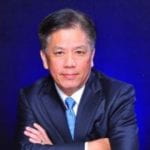
 James Foster is the Oliver T. Carr, Jr. Professor of International Affairs, Professor of Economics, and Co-Director of the Institute for International Economic Policy at the George Washington University. He is also a Research Associate at the Oxford Poverty and Human Development Initiative at Oxford University. Professor Foster’s research focuses on welfare economics — using economic tools to evaluate and enhance the wellbeing of people. His work underlies many well-known social indices including the global Multidimensional Poverty Index (MPI) published annually by the UNDP in the Human Development Report, dozens of national MPIs used to guide domestic policy against poverty, the Women’s Empowerment in Agriculture Index (WEAI) at USAID, the Gross National Happiness Index of Bhutan, the Better Jobs Index of the InterAmerican Development Bank, and the Statistical Performance Index of the World Bank. Prof. Foster received his PhD in Economics from Cornell University and has a Doctorate Honoris Causa from Universidad Autónoma del Estado Hidalgo (Mexico).
James Foster is the Oliver T. Carr, Jr. Professor of International Affairs, Professor of Economics, and Co-Director of the Institute for International Economic Policy at the George Washington University. He is also a Research Associate at the Oxford Poverty and Human Development Initiative at Oxford University. Professor Foster’s research focuses on welfare economics — using economic tools to evaluate and enhance the wellbeing of people. His work underlies many well-known social indices including the global Multidimensional Poverty Index (MPI) published annually by the UNDP in the Human Development Report, dozens of national MPIs used to guide domestic policy against poverty, the Women’s Empowerment in Agriculture Index (WEAI) at USAID, the Gross National Happiness Index of Bhutan, the Better Jobs Index of the InterAmerican Development Bank, and the Statistical Performance Index of the World Bank. Prof. Foster received his PhD in Economics from Cornell University and has a Doctorate Honoris Causa from Universidad Autónoma del Estado Hidalgo (Mexico).
 Maggie Chen is Professor of Economics and International Affairs at George Washington University. She has served as Director of GW’s Institute for International Economic Policy and worked as an economist in the research department of the World Bank and a consultant for the World Bank, the International Finance Corporation, the Inter-American Development Bank, and the U.S. Congressional Budget Office. Professor Chen’s research areas include multinational firms, international trade, and regional trade agreements. Her work has been published in academic journals such as the Review of Economics and Statistics, American Economic Journal: Applied Economics, American Economic Journal: Economic Policy, Journal of International Economics, and Journal of Development Economics. She is a co-editor of Economic Inquiry and an associate editor of Economic Modeling.
Maggie Chen is Professor of Economics and International Affairs at George Washington University. She has served as Director of GW’s Institute for International Economic Policy and worked as an economist in the research department of the World Bank and a consultant for the World Bank, the International Finance Corporation, the Inter-American Development Bank, and the U.S. Congressional Budget Office. Professor Chen’s research areas include multinational firms, international trade, and regional trade agreements. Her work has been published in academic journals such as the Review of Economics and Statistics, American Economic Journal: Applied Economics, American Economic Journal: Economic Policy, Journal of International Economics, and Journal of Development Economics. She is a co-editor of Economic Inquiry and an associate editor of Economic Modeling.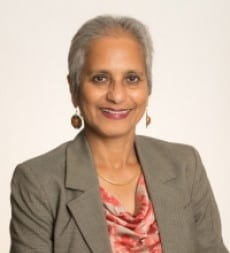 Deepa Ollapally is a political scientist specializing in Indian foreign policy, India-China relations, and Asian regional and maritime security. She is Research Professor of International Affairs and the Associate Director of the Sigur Center. She also directs the Rising Powers Initiative, a major research program that tracks and analyzes foreign policy debates in aspiring powers of Asia and Eurasia. Dr. Ollapally is currently working on a funded book, Big Power Competition for Influence in the Indian Ocean Region, which assesses the shifting patterns of geopolitical influence by major powers in the region since 2005 and the drivers of these changes. She is the author of five books including Worldviews of Aspiring Powers (Oxford, 2012) and The Politics of Extremism in South Asia (Cambridge, 2008). Her most recent books are two edited volumes, Energy Security in Asia and Eurasia (Routledge, 2017), and Nuclear Debates in Asia: The Role of Geopolitics and Domestic Processes (Rowman & Littlefield, 2016). Dr. Ollapally has received grants from the Carnegie Corporation, MacArthur Foundation, Smith Richardson Foundation, Ford Foundation, the Rockefeller Foundation, and the Asia Foundation for projects related to India and Asia. Previously, she was Associate Professor at Swarthmore College and has been a Visiting Professor at Kings College, London and at Columbia University. Dr. Ollapally also held senior positions in the policy world including the US Institute of Peace, Washington DC and the National Institute of Advanced Studies, Bangalore, India. She is a frequent commentator in the media, including appearances on CNN, BBC, CBS, Diane Rehm Show and Reuters TV. She holds a Ph.D. in Political Science from Columbia University.
Deepa Ollapally is a political scientist specializing in Indian foreign policy, India-China relations, and Asian regional and maritime security. She is Research Professor of International Affairs and the Associate Director of the Sigur Center. She also directs the Rising Powers Initiative, a major research program that tracks and analyzes foreign policy debates in aspiring powers of Asia and Eurasia. Dr. Ollapally is currently working on a funded book, Big Power Competition for Influence in the Indian Ocean Region, which assesses the shifting patterns of geopolitical influence by major powers in the region since 2005 and the drivers of these changes. She is the author of five books including Worldviews of Aspiring Powers (Oxford, 2012) and The Politics of Extremism in South Asia (Cambridge, 2008). Her most recent books are two edited volumes, Energy Security in Asia and Eurasia (Routledge, 2017), and Nuclear Debates in Asia: The Role of Geopolitics and Domestic Processes (Rowman & Littlefield, 2016). Dr. Ollapally has received grants from the Carnegie Corporation, MacArthur Foundation, Smith Richardson Foundation, Ford Foundation, the Rockefeller Foundation, and the Asia Foundation for projects related to India and Asia. Previously, she was Associate Professor at Swarthmore College and has been a Visiting Professor at Kings College, London and at Columbia University. Dr. Ollapally also held senior positions in the policy world including the US Institute of Peace, Washington DC and the National Institute of Advanced Studies, Bangalore, India. She is a frequent commentator in the media, including appearances on CNN, BBC, CBS, Diane Rehm Show and Reuters TV. She holds a Ph.D. in Political Science from Columbia University.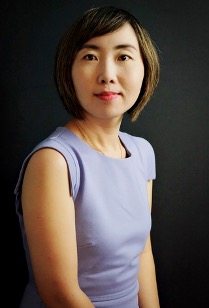 Maggie Xiaoyang Chen
Maggie Xiaoyang Chen